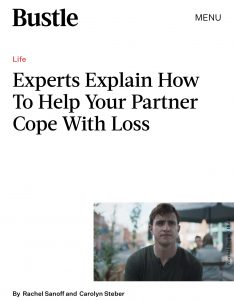SELF-COMPASSION: A How-To Guide for Moms (or anyone)
March 27, 2020
PART 1 OF A STRESS-REDUCTION SERIES FOR MOMS
The other day I asked my friend Patty if she was experiencing any side effects from a medication she had recently started. She said “I am feeling more irritable, at times, and tearful… not sure if that’s a side effect or just my life.” To me, that says it all. As moms we are chronically stressed out and overwhelmed.
If you feel overwhelmed and completely stressed at times, you are not alone. We are coping with so much in our world right now, even if we know we are doing our best and that others are also struggling, we can benefit from some self-compassion.
I would argue that we all suffer. As connected as we might be with our smart phones and social media, I believe, we are more isolated, anxious, and depressed than we were in less “connected” times. This was true long before the Coronavirus and self-quarantine.
Currently we are barraged with information, frightening statistics, and fears that we may not have enough supplies to get through this difficult time.
We fear for our loved ones who are working outside the home, risking infection for themselves and those they live with.
We are deeply concerned about our elderly family members’ safety and hope that they are doing all they can to remain safe. If they are far from us, we wonder if they have the support they need and if those who see them are practicing safe behaviors.
We worry about our children’s educational gains eroding, while they are out of school, perhaps for months. And we are concerned about their social development, as they spend more and more time away from their friends and classmates.
We can’t help but feel, at least at times, that that things are unraveling. Perhaps, no one feels this more than moms. Am I keeping my home safe from infection?
Am I risking my family when I run an errand?
Is it really necessary?
If I don’t go, will I not have enough of a vital supply?
Am I adequately meeting my kids’ mental, physical and emotional needs during this time of self-isolation?
Are my kids going to fall behind in school because I’m not supporting them enough with home-schooling?
Are they getting too much screen time?
Will my kids somehow “out” me as the over-stressed, under-prepared, parent, that I often
think I am?
Imposter syndrome is real, and we moms often feel that we are not good enough. Having a case of the “not good enoughs”, as I call them, is a perfect time to utilize self-compassion.
While most of us see compassion as a wonderful quality, many do not feel comfortable with the idea of self-compassion, confusing it with self-pity and self-absorption. In actuality, there is a growing body of research showing that self-compassion, or treating oneself with love, friendliness, and kindness, has protective effects against depression, anxiety and stress.
WHAT is SELF-COMPASSION?
Self-compassion can be a lot of things from making time to do the things that feed your soul and make you a happier, more productive mom. This could include healthy eating, exercise, meditation, yoga, hot baths or nature walks. It can also mean cutting down on your commitments etc. Things we typically call “self-care.”
It can also be the way in which we handle our unhelpful thoughts and unpleasant feelings. These skills will be covered in other blogs in this series on stress-relief for overwhelmed moms. Today I am covering one specific way of practicing self-compassion.
Self-compassion, as I am using the term here, is a practice, that we can utilize when life feels so painful we can barely breathe (but also in less dire circumstances).
This is one of many skills in ACT (Acceptance and Commitment Therapy) that we can use to help ourselves with our deepest pain, or a ruminating thought that just drives us crazy, such as:
“I’m a bad mom.”
“I’m lousy at my job.”
“I’m not good enough” or (something that I have done) “isn’t good enough”
“No one likes me.”
“I’m going to screw my kids up.”
“I am not lovable/loved”. etc. etc.
WHEN DO MOMS NEED SELF-COMPASSION?
If you guessed, “constantly,” you’re probably right. When you’re really hurting and there’s no-one in your support system available to lean on, you can use this self-compassion practice to help yourself, instead of over-eating, yelling at your kids, compulsively overexercising, shopping, mindlessly surfing the web, or any other unhelpful activity. (We call these “away moves” in ACT. As in, we are moving away from the type of life we want to live.)
Having a self-compassion practice can be a powerful and useful tool.
You can use self-compassion whether what’s bothering you is something big, like a heartbreak, or other painful loss, or more minor, such as the words you said when you yelled at your kids, or when you fought a little dirty with your spouse.
WHY DO MOMS NEED SELF-COMPASSION?
When you are hurting and punishing yourself for something you did, like that mistake you made at work or yelling at your kids, it’s hard to go on being super mom. How can you get it all done and be loving and kind to your family, when you are beating yourself up, or in so much emotional pain, that it is impossible to focus? How can you live peacefully in close quarters 24/7 when you are overwhelmed and stressed?
It’s true, self-compassion can be a little tricky to learn. However, I am here to tell you, that it is worth the work that you put in, to get good at it.
So, let’s say that you are hurting. You are feeling really low and not good about something. Perhaps you feel like you’re not good enough in some way. There’s no best friend or significant other available to talk to, right now. This is the perfect time to use self compassion.
SELF-COMPASSION: The HOW-TOs
Self-Compassion often starts with putting a kind and gentle hand on your heart, perhaps your stomach, or some other area where you’re feeling the physical discomfort. No matter what’s happening, I tend to, put my hand on my heart and maybe my second hand on my stomach. This is a personal preference. No matter where you put your hand or hands, the idea is that you are sending kindness and caring inward through touch. Then, you may also say some comforting words either aloud or in your head to yourself.
Some possible phrases are:
“It’s okay, sweetheart.”
“I’m here.”
“I love you.”
“It will be okay.”
“Everything is alright.”
“This is painful, but it will pass.”
“It’s going to be okay.”
“All will be well.” etc.
When you are with others, you may not feel comfortable putting a hand on your chest, stomach, etc. This is understandable but you may be surprised by what you can get away with, without other people paying any attention!
SELF-COMPASSION FEELS WEIRD
As simple as this all may seem, it can be really hard for people to learn/feel comfortable doing it. Personally,when I was learning this skill, I didn’t feel like I could send kindness and caring inward. It felt unnatural and when I tried to do it, I almost felt uncomfortable in my own skin. The words I said felt meaningless and were nearly impossible to say.
If you were not raised with this skill. It may feel weird or uncomfortable. This is perfectly natural and is understandable for people like us who didn’t grow up knowing how to practice these skills.
SELF-COMPASSION HACK
A way to access self-compassion for the newbie, is to think of yourself when you were a very young child. Imagine that you are offering this love, kindness, and compassion to that younger, more helpless version of yourself. Since young children are so vulnerable, this makes it much easier for many of us. We are less likely to judge our young-child selves harshly or withhold kindness from them, like we might do to our adult selves.
Many of my clients report that it’s much easier, to send that kindness inward this way, especially early on. After all, offering kindness to a young child in distress, is something, as mothers, we are hardwired to do.
Later, you will be able to practice the skill without envisioning your younger self, but for now, it’s an easier way to offer some love and caring inward. I cannot tell you what a difference it can make in your life!
PRACTICE PRACTICE PRACTICE
This is called a self-compassion practice for a reason. Practice it several different times before you decide it’s too weird, difficult, or ineffective. This is all part of the process.
Ideally, I’d like you to try 20-30 rounds of this practice before giving up on it. As with many of the ACT skills that I teach, building a self-compassion practice is like a muscle. The more you use it, the stronger it becomes and the stronger you become!
You may even find with this skill, that you may not need to lean on that BFF as often because you’ve “got this”.
I truly believe, if you continue to work at it, you will be on your way to feeling better, when you need it, whether or not your support network is available.
Hang in there, mama. Your family and friends will thank you for it. And more importantly, you’ll be glad you did.
Catherine Saxton-Thompson is a South Floridian, wife, mom, beach-lover, ACT therapist & coach. She sees people in her international practice, Wholehearted Life Therapy, where she provides coaching, therapy, and behavioral health consulting, face-to-face (in Florida), and virtually/online, throughout the US and beyond. When she’s not with a client or working on her latest video or article, she is swimming in the pool, at the beach, snorkeling or swimming in the ocean, or just hanging out with her husband, son and two fur babies, a pup and a kitty. To learn more or to schedule a free mental health check-in, go to https://wholeheartedlifefl.com

